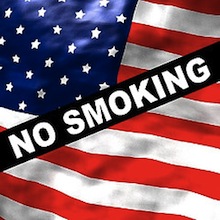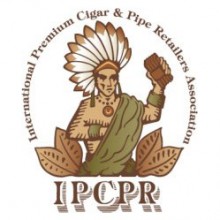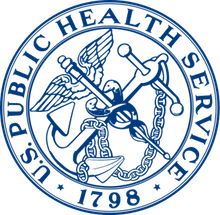Stogie News: Anti-Cigar Legislation Round-Up
3 Mar 2011
State legislatures all around the country are in session, and that means cigar rights are in danger. From coast to coast, bills are being considered that would curb the rights of cigar smokers. Fortunately, Cigar Rights of America and the International Premium Cigar and Pipe Retailers Association are keeping cigar smokers updated. Here are a few of the bills from around the country to watch out for:
 California is considering a bill that would ban smoking statewide in all indoor locations except private residences. SB 575 would ban smoking in all retail tobacco businesses, private clubs, hotel lobbies, bars, taverns, banquet rooms, warehouse facilities, and employee break rooms.
California is considering a bill that would ban smoking statewide in all indoor locations except private residences. SB 575 would ban smoking in all retail tobacco businesses, private clubs, hotel lobbies, bars, taverns, banquet rooms, warehouse facilities, and employee break rooms.
Kentucky is considering a bill to ban smoking in all indoor locations except private residences. Polls show Kentucky residents are evenly split on the proposed legislation.
Indiana is considering a bill that would ban smoking nearly everywhere, including cigar bar. While current cigar shops are exempt, future shops may not be.
Nebraska legislators are considering a bill (LB 436) that would severely increase the price of cigars. The bill would boost the wholesale tax on cigars and other premium tobacco products by 225%.
Maryland is considering two bills that would dramatically increases the cost of cigars. If both bills pass, tobacco excise taxes would increase by 500%.
Texas is considering a state-wide ban on smoking. The bill, introduced by a Dallas-area Republican (demonstrating that anti-Cigar Rights legislation is bipartisan), would prohibit smoking in indoor areas of most businesses, health care facilities, and sporting venues.
Washington is considering HB 1246, which would limit cigar smokers’ choices and make tobacco sales less consumer-friendly. The bill bans the sale of any tobacco that has a “distinguishable flavor or aroma other than tobacco”, including flavored or infused cigars, such as Acid, and flavored pipe tobacco. The bill would force tobacco to be kept behind a counter at most tobacco retailers, though dedicated cigar shops appear to be exempt.
As you can see, anti-cigar legislation is moving all around the country. It is critical that lawmakers hear from their constituents if these measures are to be defeated. And this is just a small selection of pending legislation. To keep up-to-date on all the anti-cigar legislation in your area, we recommend subscribing to updates from the CRA and constantly monitoring the IPCPR legislation page.
photo credit: Stogie Guys

 It was that Virginia smoking ban that inspired Stephen Boyajian to found
It was that Virginia smoking ban that inspired Stephen Boyajian to found  But now is the most important time in the battle against anti-smoking legislation. Complacency now could be devastating later, while diligence and action now will pay dividends later when trying to stop the next smoking ban or tax hike from passing.
But now is the most important time in the battle against anti-smoking legislation. Complacency now could be devastating later, while diligence and action now will pay dividends later when trying to stop the next smoking ban or tax hike from passing. Dr. Siegel is a professor at Boston University’s School of Public Health with over 25 years of experience in the field of tobacco control, much of it advocating workplace smoking bans. However, in recent years, Dr. Siegel has spent his time debunking exaggerated claims put forth by anti-tobacco zealots.
Dr. Siegel is a professor at Boston University’s School of Public Health with over 25 years of experience in the field of tobacco control, much of it advocating workplace smoking bans. However, in recent years, Dr. Siegel has spent his time debunking exaggerated claims put forth by anti-tobacco zealots. The biggest news of January was when Swedish Match and the Scandinavian Tobacco Group
The biggest news of January was when Swedish Match and the Scandinavian Tobacco Group 
 Toraño Cigars
Toraño Cigars  Yes, that simple cigar box—like the ones you’ve got in the closet, the garage, and tucked who knows where—can make beautiful music beyond the joyous symphony of smoke the contents provide.
Yes, that simple cigar box—like the ones you’ve got in the closet, the garage, and tucked who knows where—can make beautiful music beyond the joyous symphony of smoke the contents provide. The new warning labels take up the top half of the front and back of each pack of cigarettes. Unlike previous text warnings, they include graphics and many cartoon images. All cigarette packaging will be required to use the new warnings by June 2011.
The new warning labels take up the top half of the front and back of each pack of cigarettes. Unlike previous text warnings, they include graphics and many cartoon images. All cigarette packaging will be required to use the new warnings by June 2011. Patrick Ashby
Co-Founder & Editor in Chief
Patrick Ashby
Co-Founder & Editor in Chief Patrick Semmens
Co-Founder & Publisher
Patrick Semmens
Co-Founder & Publisher George Edmonson
Tampa Bureau Chief
George Edmonson
Tampa Bureau Chief